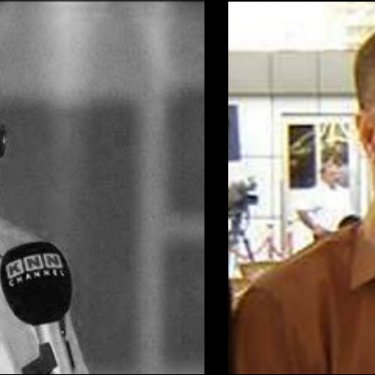Two Iraqi journalists killed in past few days

Reporters Without Borders (RSF) condemns the dangerous climate for media personnel in Iraq, and urges the authorities to do everything possible to protect them and to end the impunity for crimes of violence against them. Two journalists have been killed in Iraq this month, bringing the number of journalists killed this year to nine.
An Iraqi Media Network representative told the Journalistic Freedoms Observatory (JFO) that Shahaza was killed on the spot by two men who fired at him from a car. According to RSF’s sources, he had been investigating the decline in the political and security situation in Kirkuk province.
“The heavy toll of journalists killed or murdered in Iraq is clearly linked to the prevailing impunity for crimes of violence against media personnel,” said Alexandra El Khazen, the head of RSF’s Middle East desk.
“We deplore the vagueness of local and national authorities about the murders of some journalists and we urge them to carry out impartial investigations with the aim of bringing those responsible for their deaths to justice. The impunity is to blame for the climate of terror and danger for local journalists.”
Shukri Zaynadin, a cameraman with KNN (a TV news channel affiliated to the Iraqi Kurdish opposition party Goran), was found dead on 1 December in a deserted village near Amedi, a hill town in Dohuk province, 90 km north of Erbil, the capital of Iraqi Kurdistan.
The circumstances of his death are unclear, with the media giving contradictory accounts. Most of the local media initially reported that he was shot dead after being kidnapped four days earlier. But the Dohuk police subsequently maintained that he was attacked by a wild animal while hunting with a friend. The journalist's family, however, is not convinced by this version of events, emphasizing the numerous threats he had received.
Abdel Razaq Sharif, who is KNN’s director general and the Goran party’s media spokesman, told RSF on 2 December that Zaynadin had not been in contact with KNN’s Dohuk bureau during the four days prior to the discovery of his body.
Zaynadin told KNN a month before his death that he had received threats from unidentified individuals, Sharif said, adding that it is unfortunately common for journalists and civil society representatives to receive threats in Iraqi Kurdistan.
At least three other journalists were murdered this year. Wedat Hussein Ali, a 28-year-old Iraqi Kurdish journalist working for RojNews, a news agency that supports Turkey’s outlawed Kurdistan Workers Party (PKK), was tortured and murdered after being abducted in Dohuk, the capital of Dohuk province, on 13 August.
In a report on its investigation into Ali’s murder issued in late November, the Iraqi Kurdistan parliament’s human rights committee claimed that it was organized by the security forces and the Kurdistan Democratic Party, one of Iraqi Kurdistan’s two main ruling parties.
Moreover, two Iraqi journalists employed by Al-Sharqiya News, a privately-owned TV channel, were gunned down in Diyala, a province northeast of Baghdad, in January.
Ranked 158th out of 180 countries in RSF’s 2016 World Press Freedom Index, Iraq is one of the world’s most dangerous places for journalists.



